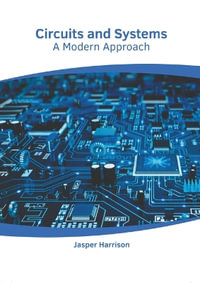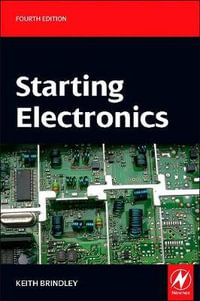
Design and Optimization of Passive UHF RFID Systems
By: Jari-Pascal Curty, Michel Declercq, Catherine Dehollain
Hardcover | 25 October 2006
At a Glance
Hardcover
$169.00
Ships in 5 to 7 business days
ISBN: 9780387352749
ISBN-10: 0387352740
Published: 25th October 2006
Format: Hardcover
Language: English
Number of Pages: 160
Audience: College, Tertiary and University
Publisher: Springer Nature B.V.
Country of Publication: US
Dimensions (cm): 23.5 x 15.88 x 1.27
Weight (kg): 0.39
Shipping
| Standard Shipping | Express Shipping | |
|---|---|---|
| Metro postcodes: | $9.99 | $14.95 |
| Regional postcodes: | $9.99 | $14.95 |
| Rural postcodes: | $9.99 | $14.95 |
Orders over $79.00 qualify for free shipping.
How to return your order
At Booktopia, we offer hassle-free returns in accordance with our returns policy. If you wish to return an item, please get in touch with Booktopia Customer Care.
Additional postage charges may be applicable.
Defective items
If there is a problem with any of the items received for your order then the Booktopia Customer Care team is ready to assist you.
For more info please visit our Help Centre.
You Can Find This Book In
This product is categorised by
- Non-FictionEngineering & TechnologyElectronics & Communications EngineeringCommunications Engineering & TelecommunicationsRadio Technology
- Non-FictionEngineering & TechnologyEnergy Technology & EngineeringElectrical Engineering
- Non-FictionEngineering & TechnologyElectronics & Communications EngineeringElectronics EngineeringCircuits & Components
- Non-FictionEngineering & TechnologyOther Technologies & Applied SciencesApplied OpticsImaging Systems & Technology
- Non-FictionEngineering & TechnologyElectronics & Communications EngineeringElectronics EngineeringMicrowave Technology

























